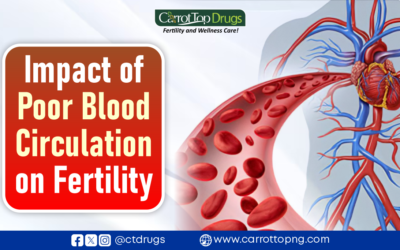Introduction:
Prostate health is a topic of significant concern for men, particularly as they age. As men reach the age of 50 and beyond, the risk of developing prostate problems, such as benign prostatic hyperplasia (BPH), prostatitis, and prostate cancer, increases. Therefore, it becomes crucial for men over 50 to prioritize their prostate health and take proactive steps to maintain it. In this guide, we will explore essential prostate health tips for men over 50.
Functions of Prostate Gland
The prostate gland, an essential component of the male reproductive system, serves several vital functions:
Production of Prostatic Fluid: One of the primary functions of the prostate is to produce prostatic fluid. This fluid constitutes a significant portion of semen, the fluid that carries sperm during ejaculation. Prostatic fluid plays a crucial role in nourishing and protecting sperm, enhancing their motility and viability. Without prostatic fluid, sperm would not be able to survive and navigate the female reproductive tract to fertilize an egg.
Muscle Contraction: During ejaculation, muscles within the prostate gland contract rhythmically. These contractions help propel semen through the urethra and out of the body. By aiding in the expulsion of semen, the prostate ensures that sperm can reach their destination and have a chance to fertilize an egg.
Regulation of Urinary Flow: The location of the prostate gland, surrounding the urethra just below the bladder, gives it a crucial role in regulating urinary flow. The prostate gland’s position allows it to influence the flow of urine from the bladder through the urethra. However, enlargement of the prostate gland, as seen in conditions like benign prostatic hyperplasia (BPH), can lead to compression of the urethra, resulting in urinary symptoms such as difficulty starting urination and weak urine flow.
Secretion of Prostate-Specific Antigen (PSA): The prostate gland secretes prostate-specific antigen (PSA), a protein enzyme that liquefies semen. PSA helps maintain the fluidity of semen, ensuring that sperm can move freely. PSA levels in the blood can also serve as a marker for various prostate conditions, including prostate cancer. Elevated PSA levels may indicate the presence of prostate cancer or other prostate issues, prompting further evaluation and diagnostic tests.
Other functions are:
- Immune Function
- Hormone Regulation
- Sexual Function
- Fluid Balance
- Sphincter Control
Statistics of Men With Problems With Their Prostate
Benign Prostatic Hyperplasia (BPH):
BPH is a common condition among aging men, with prevalence increasing with age. According to the National Institute of Diabetes and Digestive and Kidney Diseases (NIDDK), about 50% of men experience symptoms of BPH by age 60, and up to 90% of men over age 85 may be affected.
Prostatitis:
Prostatitis can affect men of all ages, but it’s most common in young and middle-aged men. The American Urological Association (AUA) estimates that about 10% to 15% of men experience prostatitis symptoms at some point in their lives.
Prostate Cancer:
Prostate cancer is the second most common cancer in men worldwide. According to the American Cancer Society (ACS), about 1 in 8 men will be diagnosed with prostate cancer during their lifetime. The risk of prostate cancer increases with age, with the average age of diagnosis being around 66 years.
Common Problems of The Prostate
Benign Prostatic Hyperplasia (BPH):
Benign Prostatic Hyperplasia (BPH) is a non-cancerous enlargement of the prostate gland that commonly affects aging men. As men age, the prostate gland naturally grows larger, but in some cases, this enlargement can lead to compression of the urethra, causing urinary symptoms. These symptoms may include frequent urination, especially at night (nocturia), urgency, difficulty starting or maintaining a urine stream, weak urine flow, dribbling after urination, and a feeling of incomplete emptying of the bladder. While BPH is not typically associated with prostate cancer, it can significantly impact a man’s quality of life by interfering with daily activities and sleep patterns.
Prostatitis:
Prostatitis refers to inflammation or infection of the prostate gland, which can cause a range of symptoms and discomfort. This condition can be classified into four main types: acute bacterial prostatitis, chronic bacterial prostatitis, chronic pelvic pain syndrome (CPPS), and asymptomatic inflammatory prostatitis. Acute bacterial prostatitis is typically caused by bacterial infection and presents with sudden onset of severe symptoms such as fever, chills, lower back pain, and urinary urgency. Chronic bacterial prostatitis involves recurrent urinary tract infections and may lead to long-term inflammation of the prostate gland.
Prostate Cancer:
Prostate cancer is a malignancy that develops in the prostate gland and is one of the most common cancers among men worldwide. While the exact cause of prostate cancer is unknown, certain risk factors such as age, family history, ethnicity, and lifestyle habits can increase the likelihood of developing the disease. Prostate cancer often grows slowly and may not cause symptoms in its early stages. However, as the cancer progresses, it can lead to urinary symptoms such as difficulty urinating, blood in the urine or semen, erectile dysfunction, and pain in the pelvic area or lower back.
Prostate Health Tips For Men Over 50
1. Regular Screenings:
Prostate health tips for men over 50 emphasize the importance of regular screenings for prostate cancer. Schedule annual check-ups with your healthcare provider to discuss prostate-specific antigen (PSA) tests and digital rectal exams (DREs). Early detection is key to successful treatment outcomes, so don’t delay in prioritizing your prostate health.
2. Healthy Diet and Lifestyle:
Maintaining a healthy diet and lifestyle is crucial for prostate health tips for men over 50. Incorporate plenty of fruits, vegetables, whole grains, and lean proteins into your diet while limiting red meat and processed foods. Regular exercise, such as brisk walking or cycling, can also help reduce the risk of prostate problems and promote overall well-being.
3. Stay Hydrated:
Prostate health tips for men over 50 include staying adequately hydrated by drinking plenty of water throughout the day. Proper hydration is essential for urinary health and can help flush out toxins from the body. Aim to drink at least 8-10 glasses of water daily to support optimal prostate function and overall hydration.
4. Manage Stress:
Stress management is a crucial aspect of prostate health tips for men over 50. Chronic stress can negatively impact prostate health and contribute to urinary symptoms. Practice relaxation techniques such as deep breathing, meditation, or yoga to reduce stress levels and promote mental well-being.
5. Limit Alcohol and Caffeine:
Prostate health tips for men over 50 advise limiting alcohol and caffeine intake, as these substances can irritate the bladder and exacerbate urinary symptoms. Opt for non-alcoholic and caffeine-free beverages whenever possible to support urinary health and minimize discomfort.
6. Quit Smoking:
If you smoke, quitting is one of the most beneficial prostate health tips for men over 50. Smoking has been linked to an increased risk of prostate cancer and other prostate problems. Seek support from healthcare professionals or smoking cessation programs to kick the habit and improve your prostate health.
7. Maintain a Healthy Weight:
Prostate health tips for men over 50 stress the importance of maintaining a healthy weight. Obesity and excess body fat have been associated with a higher risk of prostate cancer and other prostate conditions. Aim for a balanced diet and regular exercise to achieve and maintain a healthy weight.
8. Discuss Medications with Your Doctor:
If you’re taking medications for other health conditions, be sure to discuss them with your doctor as part of prostate health tips for men over 50. Some medications may affect prostate health or interact with treatments for prostate conditions. Your healthcare provider can help adjust your medications as needed to optimize your prostate health.
9. Supplements
Natural supplements and remedies offer alternative options for maintaining prostate health and managing symptoms associated with prostate conditions. These supplements are derived from plants, herbs, and other natural sources.
Some studies suggest that saw palmetto may help reduce the size of the prostate gland and improve urinary flow by inhibiting the conversion of testosterone to dihydrotestosterone (DHT). Our Evergreen Hale and Hearty for Men contains saw palmetto to help with men’s prostate health.
Pygeum is believed to work by reducing inflammation and improving bladder emptying. Some studies have shown promising results in reducing urinary symptoms and improving quality of life in men with BPH.
Lycopene is believed to help protect prostate cells from oxidative damage and inflammation, which may reduce the risk of prostate cancer. Some observational studies have suggested a potential association between higher lycopene intake and a lower risk of prostate cancer.
Zinc is a micronutrient that has been associated with improving prostate health. Our Evergreen Zinc contains zinc in the recommended requirement for every man.
Conclusion
In conclusion, implementing these prostate health tips for men over 50 into your daily routine can significantly enhance your prostate health and overall well-being. By prioritizing regular screenings, adopting a healthy diet and lifestyle, managing stress effectively, and discussing medications with your healthcare provider, you can take proactive steps to safeguard your prostate health as you age. Remember, early detection and preventive measures are key to maintaining optimal prostate function and reducing the risk of prostate problems. Stay informed, stay proactive, and prioritize your prostate health for a healthier future.
FAQs
Q. At what age should men start screening for prostate cancer?
A. Men should discuss prostate cancer screening with their healthcare provider starting at age 50, or earlier if they have risk factors or a family history of the disease.
Q. Are there any dietary supplements that can help with prostate health?
A. Some studies suggest that supplements like saw palmetto, pygeum, and lycopene may support prostate health, but it’s essential to consult a healthcare professional before taking any supplements.
Q. What are the symptoms of prostate problems?
A. Symptoms of prostate problems may include urinary difficulties, such as frequent urination, urgency, weak urine flow, pain or discomfort in the pelvic area, and blood in the urine or semen.
Q. Can lifestyle changes alone improve prostate health?
A. Yes, adopting a healthy lifestyle, including a balanced diet, regular exercise, adequate hydration, and stress management, can significantly impact prostate health and reduce the risk of prostate problems.
Q. How often should men get a prostate exam?
A. Men should discuss the frequency of prostate exams with their healthcare provider, but generally, regular screenings are recommended annually or as advised by a healthcare professional.

















